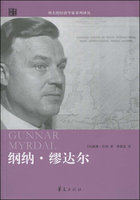So they went, and soon were engaged in contemplation of the stars, an occupation which absorbed Godfrey so much that for a while he forgot all his troubles.
When the door had shut behind them Madame looked at Juliette, who with her new watch held to her ear, observed her out of the corners of her eyes.
"I find him charming," said Madame presently.
"Yes, Mamma," replied Juliette, "so bright and even the tick is musical."
"Stupid!" exclaimed Madame. "When I was your age--well."
"Pardon!" said Juliette, opening her eyes innocently.
"Child, I meant our young English friend. I repeat that I find him charming."
"Of course, Mamma--after that necklace."
"And you--after that watch?"
"Oh! well enough, though too grave perhaps, and fond of what is far off--I mean stars," she added hurriedly.
"Stars! Pish! It is but because there is nothing nearer. At his age--@@stars!--well of a sort, perhaps."
She paused while Juliette still looked provokingly innocent. So her mother took a long step forward, for in truth she grew impatient with all this obtuseness in which, for reasons of her own, she did not believe.
"If I were a girl of your age," mused Madame as though to herself, "I do not think that ring would go to England."
"How, Mamma, would you steal it?"
"No, but I would make sure that it was given to me."
Now Juliette could no longer feign not to understand. She said nothing, but turned as red as Godfrey had done a little while before and stood waiting.
"I find him charming," repeated Madame, "though he is so young, which is a fault that will mend," and she fixed her eyes upon her daughter's face with a look of interrogation.
Then Juliette gave a little sigh and answered:
"Good. If you will make me say it, so do I also, at least, sometimes I think so, when he is not dull," and turning she fled from the room.
Madame smiled as the door closed behind her.
"That goes well, and should go better," she said to herself. "Only, for whom is the ring? There must be some girl in England, although of her he says nothing. /Peste!/ There are so many girls. Still, she is far away, and this one is near. But it could be wished that she were more experienced, for then, since she likes him well enough, all would be sure. What does a man count in such a case--especially when he is so young? Pish! nothing at all," and Madame snapped her fingers at the empty air. "It is the woman who holds the cards, if only she knows how to play them."
Now all these things happened on a Wednesday. When Godfrey went to bed that night uncomfortable memories of Madame Riennes, and of the chaste embrace which she had forced him to impress upon her expansive forehead, haunted him for a while, also fears for the future. However, Sunday was still a long way off, so he went to sleep and dreamed that he was buying presents at every shop in Lucerne and giving them all to Madame Riennes.
On Thursday he was quite happy. On Friday he began to suffer from uneasiness, which on Saturday became very pronounced. It seemed to him that already waves of influence were creeping towards him like the fringes of some miasmic mist. Doubtless it was imagination, but he could feel their first frail tentacles wrapping themselves around his will, and drawing him towards Lucerne. As the day went on the tentacles grew stronger, till by evening there might have been a very octopus behind them. If this were so that night, he wondered what would happen on the following day, when the octopus began to pull. On one point he was determined. He would not go; never would he allow Madame Riennes to put him to sleep again, and what was much worse to make him kiss her. At any rate that spirit, Eleanor, was beautiful and attractive--but Madame Riennes! Rather than forgather with her again in this affectionate manner, much as he dreaded it--or her--he would have compounded with the ghost called Eleanor.
Now, although like most young people, Godfrey was indolent and evasive of difficulties, fearful of facing troubles also, he had a bedrock of character. There were points beyond which he would not go, even for the sake of peace. But here a trouble came in; he was well aware that although he would not go--to Madame Riennes to wit--there was something stronger than himself which would make him go. It was the old story over again set out by St. Paul once and for ever, that of the two laws which make a shuttlecock of man so that he must do what he wills not. Having once given way to Madame Riennes, who was to him a kind of sin incarnate, he had become her servant, and if she wished to put him to sleep, or to do anything else with him, well, however much he hated it, he must obey.
The thought terrified him. What could he do? He had tried prayers, never before had he prayed so hard in all his life; but they did not seem to be of the slightest use. No guardian angel, not even Eleanor, appeared to protect him from Madame Riennes, and meanwhile, the fog was creeping on, and the octopus tentacles were gripping tighter. In his emergency there rose the countenance of Miss Ogilvy's dying counsel, welcome and unexpected as light of the moon to a lost traveller on a cloud-clothed night. What had she told him to do? To resist Madame Riennes. He had tried that with lamentable results. To invoke the help of religion. He had tried that with strictly negative results; the Powers above did not seem inclined to intervene in this private affair. To appeal to the Pasteur. That he had not tried but, unpromising as the venture seemed to be, by Jove! he would. In his imminent peril there was nothing to which he would have appealed, even Mumbo-Jumbo itself if it gave him the slightest hope of protection from Madame Riennes.















